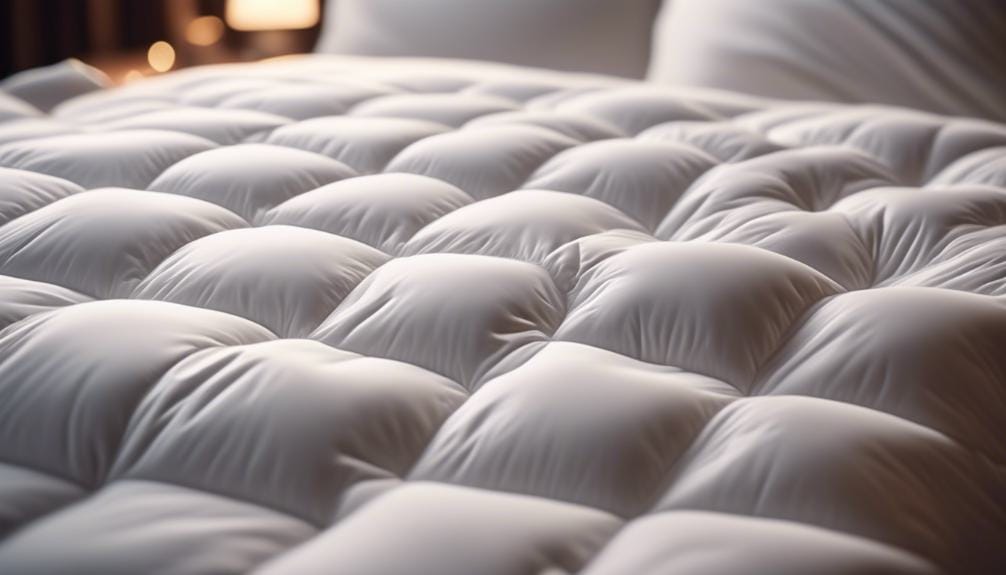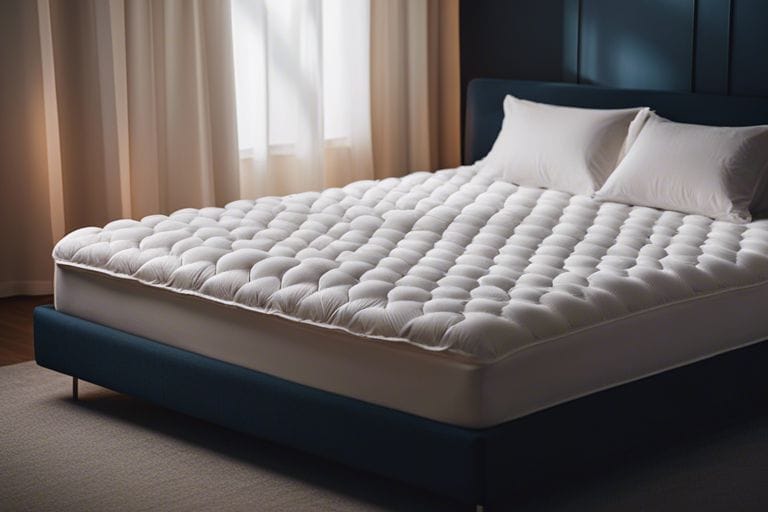Do Mattress Toppers Make You Hot? Debunking the Myths
Are you finding yourself tossing and turning at night, feeling like your mattress topper is causing you to overheat? If so, you may have fallen victim to one of the many myths surrounding mattress toppers and their impact on sleep temperature. In this informative blog post, we will debunk the common misconceptions about mattress toppers and their effects on your body temperature. We’ll explore the most important factors that contribute to feeling hot while using a mattress topper, and offer solutions to help you achieve a comfortable night’s sleep. So, if you’re tired of waking up drenched in sweat, read on to put these myths to rest once and for all.
Key Takeaways:
- Temperature regulation: While some mattress toppers may retain heat, there are many options available that are designed to promote air circulation and cooling.
- Material matters: The composition of the mattress topper is a crucial factor in determining its heat retention. Look for options made from breathable materials such as latex or gel-infused memory foam.
- Personal preference: The perception of heat may vary from person to person, so it’s important to consider your own sleeping habits and preferences when choosing a mattress topper.
The Science of Heat Retention in Mattress Toppers
Even though some people believe that mattress toppers make you hot, it’s important to understand the science behind heat retention in these products. By doing so, you can make an informed decision about whether a mattress topper will actually make you hot or not.
Materials and Heat Conductivity
When it comes to heat retention in mattress toppers, the materials used play a significant role. For example, memory foam has a reputation for trapping heat, which can make you feel hot and uncomfortable while sleeping. Conversely, latex and gel-infused toppers offer better heat conductivity, allowing for improved airflow and heat dissipation. When considering a mattress topper, be sure to look for options with materials that promote breathability and heat regulation for a cooler night’s sleep.
Mattress Topper Designs and Airflow
The design of the mattress topper also affects its ability to retain heat. Some toppers are designed with open-cell structures or ventilation channels that allow for better airflow, helping to dissipate heat and keep you cool. Additionally, toppers with a thinner profile generally provide better airflow, while thicker toppers may trap more heat. When choosing a mattress topper, consider designs that prioritize airflow and heat dissipation to ensure a comfortable and cool sleep environment.
By understanding the science of heat retention in mattress toppers, you can make an informed decision about the best option for your sleep needs. When choosing a topper, look for materials with improved heat conductivity and designs that promote airflow and heat dissipation for a cooler and more comfortable night’s sleep.

Debunking Common Myths
Some people believe that mattress toppers are synonymous with trapping heat and causing discomfort during sleep. However, the reality is far from that misconception. Let’s debunk some common myths surrounding mattress toppers and their impact on temperature regulation.
Myth 1: All Mattress Toppers Trap Heat
One common myth about mattress toppers is that they all trap heat, making you feel uncomfortably warm during the night. However, this is not necessarily true. Not all mattress toppers retain heat in the same way. Some toppers are designed with cooling properties, such as gel-infused memory foam or breathable materials, which can actually help regulate your body temperature as you sleep. When selecting a mattress topper, look for options specifically engineered to promote airflow and dissipate body heat.
Myth 2: Thickness Directly Correlates with Heat Retention
Another misconception is that the thickness of a mattress topper directly correlates with heat retention. It’s important to understand that this is not always the case. The thickness of a mattress topper does not automatically mean it will be warmer. Thicker toppers may provide more cushioning and support, but they can still be designed with cooling technologies that prevent heat buildup. Your choice should depend more on your comfort and support preferences rather than automatically assuming a thicker topper will make you hot.
Choosing the Right Mattress Topper for Your Needs
Your mattress topper has a significant impact on your overall sleeping experience, including temperature regulation. When considering a mattress topper to keep you cool, it is essential to understand the different materials and features available.
Material Considerations for Cooler Sleep
When looking for a mattress topper to keep you cool, consider natural materials such as wool. Wool has natural temperature-regulating properties and can wick away moisture, keeping you cool and comfortable throughout the night. To learn more about the cooling properties of wool mattress toppers, check out Do Wool Mattress Toppers Keep You Cool?
Additional Features to Improve Sleep Quality
In addition to material, look for mattress toppers with additional features designed to improve sleep quality. For example, a ventilated or aerated design allows for better airflow, reducing heat retention and keeping you cool. Some mattress toppers also have infused gels or cooling technology that actively work to dissipate body heat, further enhancing the coolness of your sleep surface.

Do Mattress Toppers Make You Hot? Debunking the Myths
Ultimately, it is important to recognize that not all mattress toppers are created equal. While some may retain heat and make you feel uncomfortably warm, others are designed to promote airflow and regulate temperature for a cooler night’s sleep. By choosing a mattress topper made from breathable materials such as latex or gel-infused memory foam, you can effectively combat the misconception that all mattress toppers will make you hot. Additionally, using a mattress protector and opting for a lower tog duvet can further help to regulate your body temperature and maintain a comfortable sleeping environment. Therefore, don’t let the myth of mattress toppers making you hot deter you from experiencing the benefits of enhanced comfort and support for your sleep quality.
FAQ
Q: Do mattress toppers make you hot?
A: Mattress toppers do not inherently make you hot. The materials used in a mattress topper, such as memory foam or gel-infused foam, are designed to regulate temperature and provide a cooling effect. However, the perception of heat can vary depending on individual preferences and the specific topper material. Proper ventilation and breathable bedding can also play a role in maintaining a comfortable sleeping temperature.
Q: What are the common myths about mattress toppers and heat?
A: One common myth is that all mattress toppers retain heat. In reality, there are various types of mattress toppers with different heat-regulating properties. Another myth is that thicker mattress toppers are always hotter. While thickness can affect heat retention to some extent, the materials and construction of the topper have a greater impact on temperature regulation. It’s important to consider the specific characteristics of a mattress topper rather than relying solely on assumptions or generalizations.
Q: How can I prevent feeling hot with a mattress topper?
A: To prevent feeling hot with a mattress topper, consider choosing a topper made of breathable materials such as latex, bamboo, or cotton. Look for toppers with cooling properties, such as gel-infused foam or open-cell memory foam. Additionally, using breathable bedding, maintaining proper air circulation in the bedroom, and regulating the room temperature can all contribute to a cooler sleeping environment when using a mattress topper.
